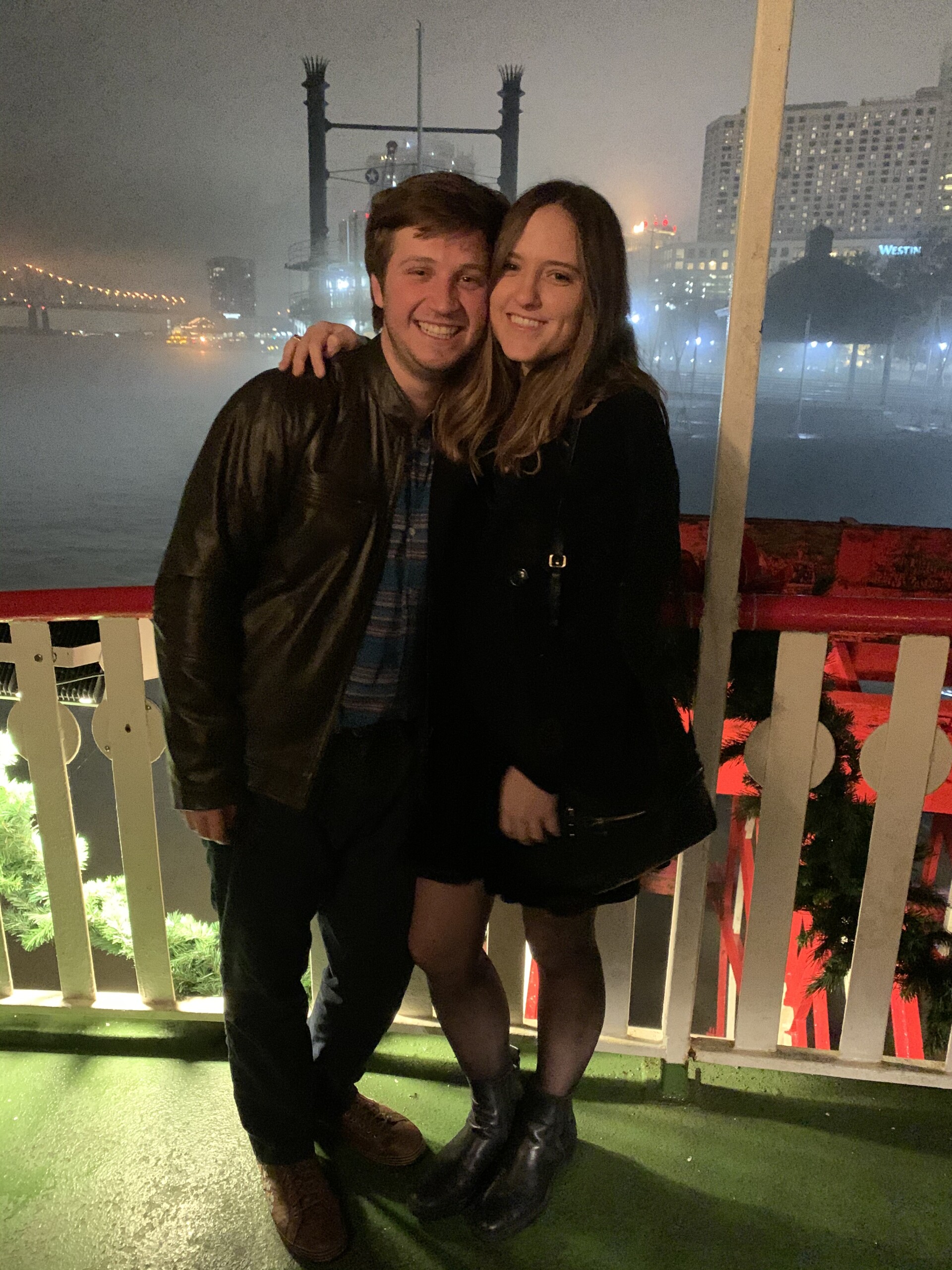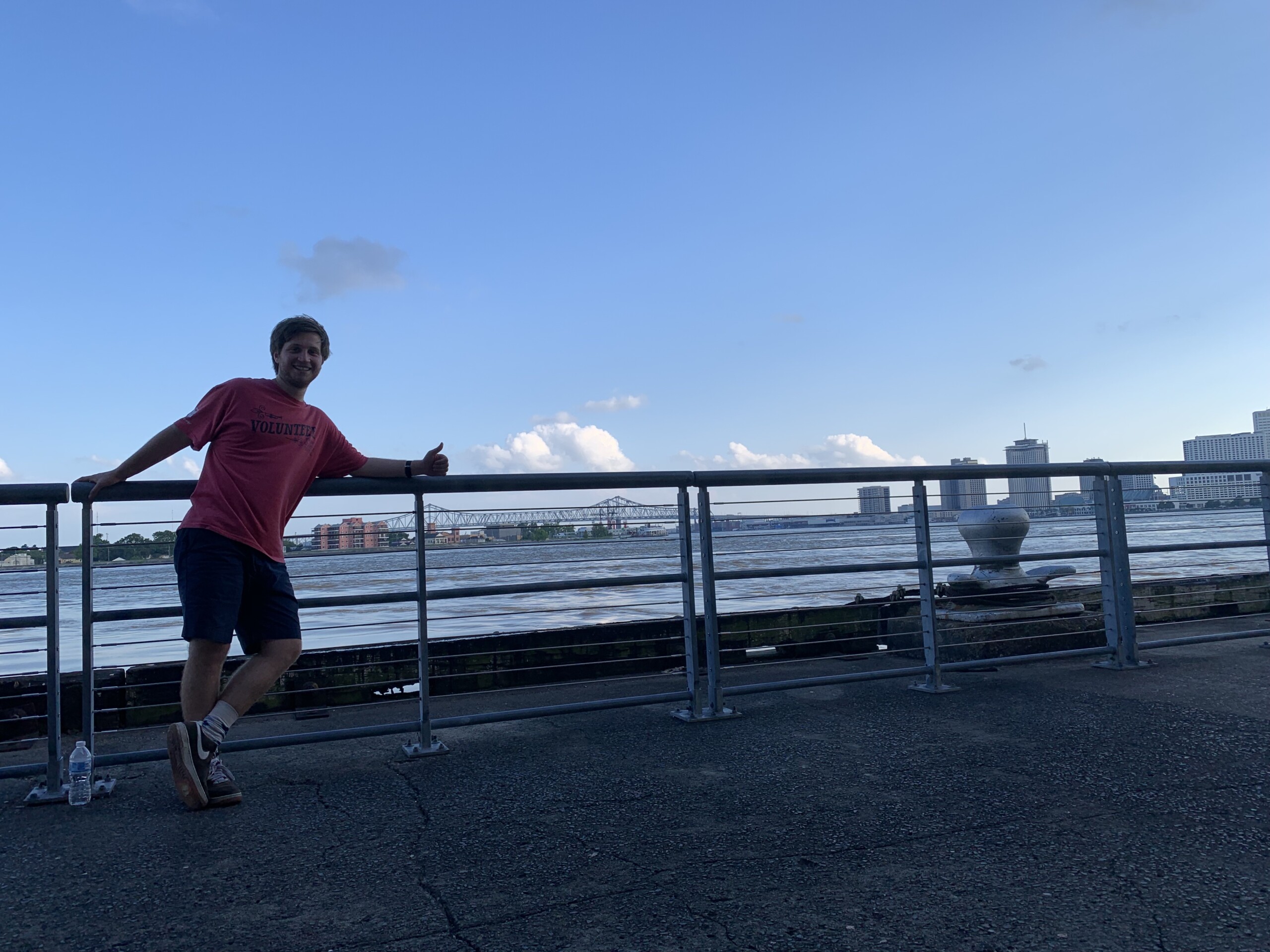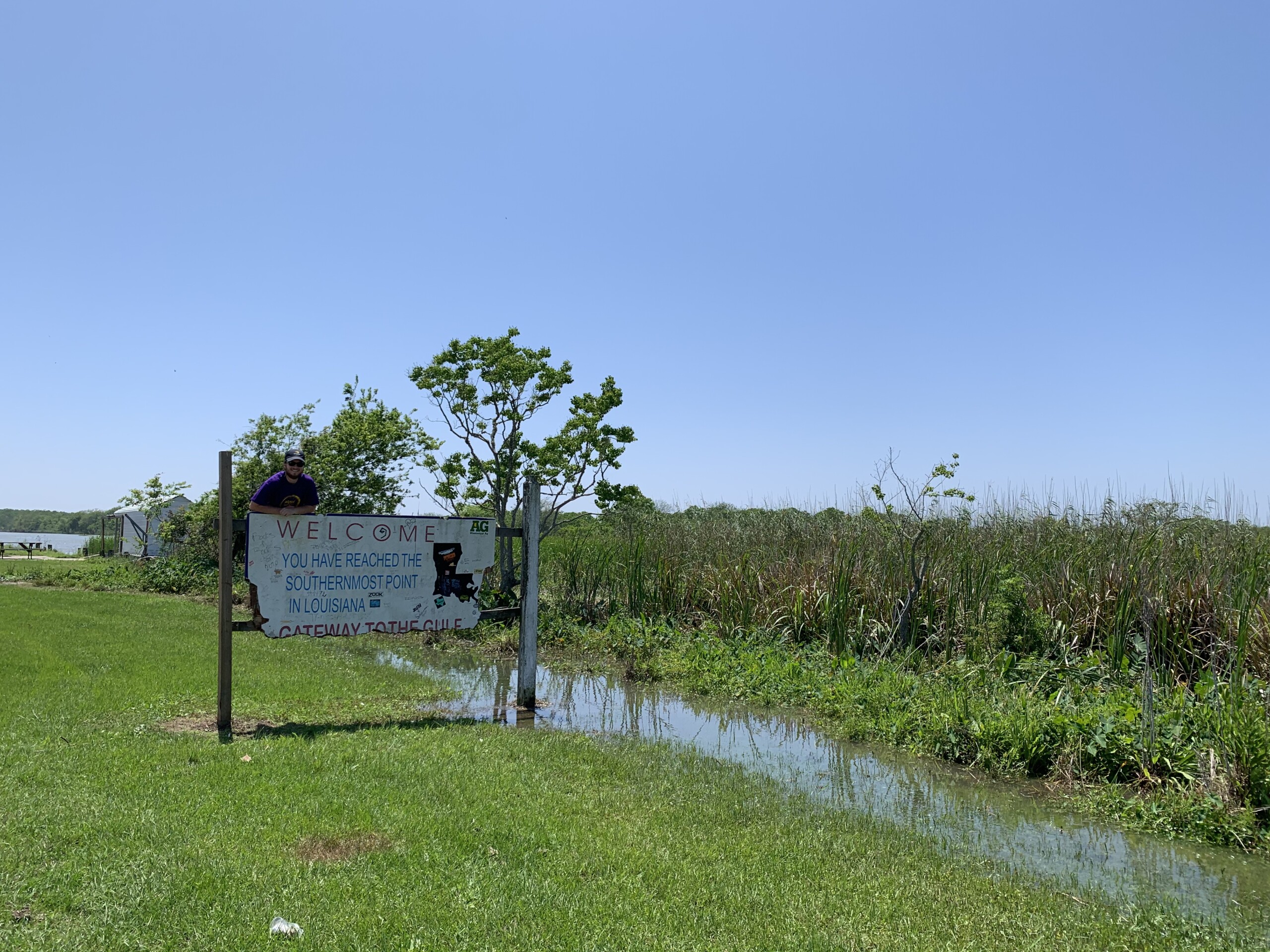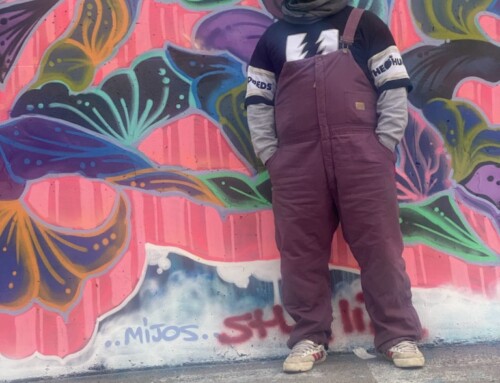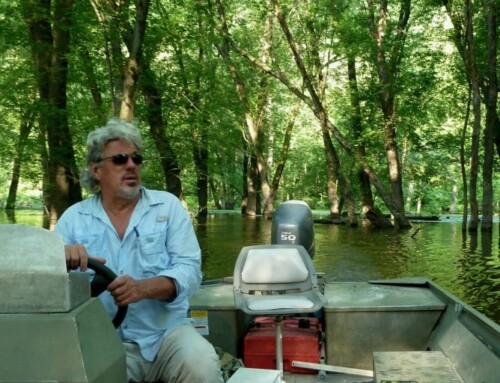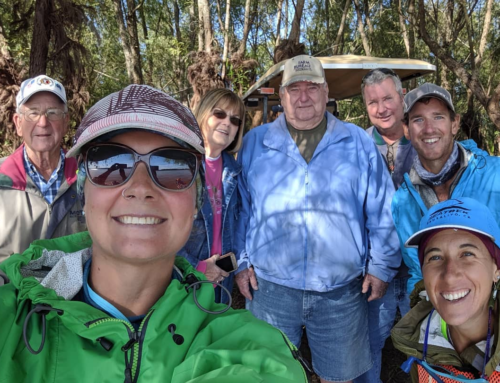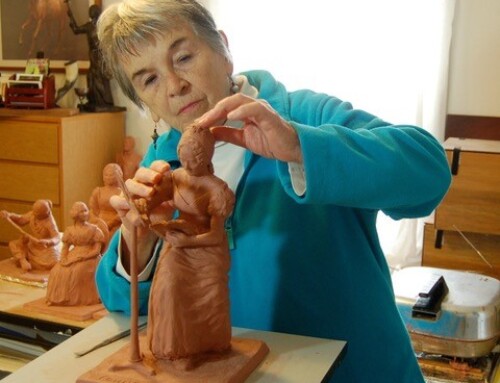For native New Orleanian Jorge Abadin, inspiration is just a bench in Crescent Park away. “I’d bring my maté out there (he studied in Argentina for a while). I’d bring a book and something to write with.” He’d sit on that bench and let his mind wander as he watched the Mississippi River flow. Sometimes, thinking was enough. Other times, he translated his thoughts into poems.
Even though he grew up in New Orleans, it took him a while to find his way to the river. Not until he was a college student, in fact, in Baton Rouge at Louisiana State University. He worked as a delivery driver to earn some cash and regularly crossed up and over the Mississippi. It got his attention. As he got to know downtown Baton Rouge better, he drifted toward the riverfront where he’d find a bench to sit for a while and watch. When the river got low, he found a new spot—unknown to most people—where he could hang out, a spot that he sometimes shared with friends.
In Baton Rouge, he found that time spent next to the river helped him clear his head. “Going out to the river was always a place to calm down… to disconnect from campus and just take it slow and take it easy and enjoy the water.”
Once the river had his attention, he sought it out in new places. He found a nice patch of grass at the end of the Fly in Audubon Park, a place that entices folks to sit, eat, relax, hang out, and watch the tugs and barges drift by.
He may also wander over to Algiers Point on the bank opposite from the French Quarter, where his mind will sometimes fill with the music of an old gospel song, such as I’ll Fly Away, a song with a meaning that has evolved over time and generations. One line in the song references flying to a home on God’s celestial shores. “When I think about it [those lyrics], I’ll think about Algiers Point: sitting out there in the grass at Algiers Point on a sunny day, a little windy on the river, a barge passes by; you’re just content. This is God’s celestial shore.”
Crescent Park, though, remains special to him. “It’s a nice little description of New Orleans, of ruin and beauty coinciding together on the river.” On that bench near the Mandeville Shed, not far from willow stands growing around abandoned wharves, he’d think about what the Mississippi represents.
“The river just for me has always meant opposites. It means everything and it means nothing. It’s life, it’s death. It’s beautiful, it’s ugly. It’s clear, it’s muddy. It’s rough and calm at the same time.”
In New Orleans, “everybody loves the river. They hate it—it’s a beast—but it’s also so beautiful.”
One of Jorge’s river-inspired poems is called “A Response to Berthe D’s “Love” — A River Live Session.” Here’s a sample:
Love is
Sky so blue cloud so white, believe the cornet dream,
Red beans and ricely yours, a smile now mainstream.
A French Quarter trombone, flying away with blues,
A dancing resting place, for a ramblin’ man’s booze.
Love is
A moon that outshines sun, Maple drips Rebirth band,
God’s celestial shore, living in gloryland.
Feeling my lovely home, watch a steamboat joyride,
Hearing all of these sounds, down by the riverside.
